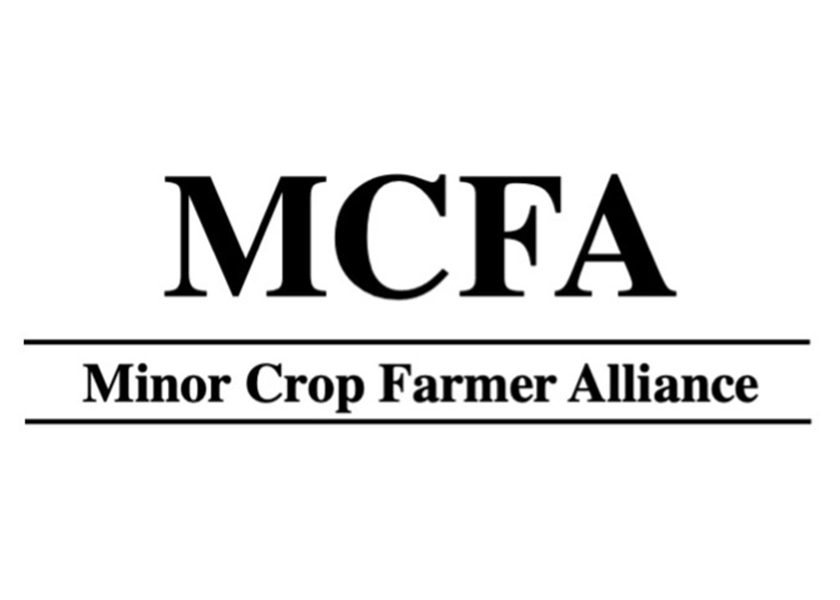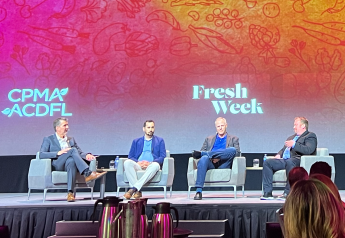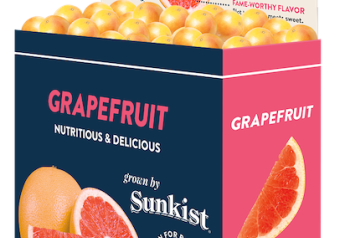ESA poses a serious and expensive complication for specialty crop production, says MCFA

If you ask U.S. specialty crop producers to identify threats to their access to safe and effective crop protection tools, they are likely to cite consumer fears of pesticides or overly conservative risk assessments. Few growers would point to the 50-year-old Endangered Species Act (ESA) — but they should, says Minor Crop Farmer Alliance.
After nearly 50 years of fruitless efforts to find a way to incorporate ESA into its world of pesticide reviews, the U.S. Environmental Protection Agency is launching a 180-degree change in its ESA policy. The agency’s methodical, go-slow approach is history, and now EPA has put its “pedal to the metal” with a serious new proposal to protect threatened and endangered species. And the average specialty crop grower is going to find the proposal’s particularly challenging to address, given its broad approach.
Environmental activist organizations have successfully sued EPA numerous times over its failure to comply with ESA in its pesticide program decisions, effectively paralyzing the agency with layers of prescriptive reviews and court-mandated deadlines. In one recent case in September 2022, a federal appeals court ruled that EPA had violated ESA in conducting its registration review of the herbicide glyphosate. After determining it could not complete an ESA review in time to meet that court’s deadline, EPA withdrew its interim registration review decision of glyphosate while it considered its options. (Glyphosate products remain on the market for now.)
So in 2021, EPA began developing a new approach to fulfill its ESA obligations. On Nov. 16, 2022, the agency announced its ESA work plan update. EPA says the update would allow the agency to pursue protections for nontarget plants and animals earlier in its pesticide registration and registration review process. These early protections, according to EPA, should help the agency comply with ESA and reduce its legal vulnerabilities, while also providing farmers with more predictable access to pesticides.
EPA’s new proposed work plan incorporates precautionary mitigation measures to reduce potential for water and soil runoff as well as spray drift that would be listed on most pesticide labels. Since the triggers for these mitigations will be low, many specialty crop growers likely will be required to implement them as part of their pesticide application program. However, as currently constructed, these mitigation measures are suited more for major crop production rather than specialty crop production.
Later in the process, EPA will consult with the Department of the Interior’s Fish and Wildlife Service and the Department of Commerce’s National Marine Fisheries Service (collectively referred to as “the Services”). These consultations will determine whether additional protections are needed for specific species.
ESA is an MCFA priority
Minor Crop Farmer Alliance plans to submit substantive comments to EPA on its proposed new ESA work plan. The alliance is also working with EPA to try to suggest more meaningful mitigation measures that are appropriate for specialty crop producers, as well as refining when mitigation measures must be implemented. MCFA will also continue to urge EPA to adjust its overall ESA approach to be more refined and less overbroad.
Some of MCFA’s recommendations to EPA include:
- Taking a more data-driven approach to ESA biological evaluations and biological opinions.
- Refining mapping of species habitats to the subcounty level to identify where species and their habitats are located juxtaposed to actual agricultural production locations, thereby potentially reducing the actual agricultural production areas that are impacted.
- Considering growers’ existing conservation practices.
- Involving growers in discussions about potential mitigations and in mitigation pilot programs.
- Developing incentives to encourage grower participation in ESA habitat maintenance and restoration.
MCFA is also planning a workshop with EPA and the Services to explore, for example, how they could use more refined modeling and/or actual grower use data to improve their ESA evaluations, and to help inform the potential feasibility of mitigation measures.
Industry input is urgently needed
Specialty crop growers and grower groups are urged to review EPA’s proposed ESA work plan update and share their comments and questions with MCFA as soon as possible. An MCFA subcommittee is drafting comments to EPA on the industry’s behalf. Public comments on the work plan are due to EPA Feb. 14.
To give MCFA your input on EPA’s ESA work plan update or for more information, contact MCFA Technical Committee co-chair Mike Aerts with the Florida Fruit & Vegetable Association.
Jim Cranney is chairman of the Minor Crop Farmer Alliance and president of California Citrus Quality Council. MCFA advocates for use of sound science in government minor-use pesticide policies so that growers have access to safe, effective and affordable crop protection tools. MCFA is industry funded. To learn more, visit prclarity.com/mcfa.







